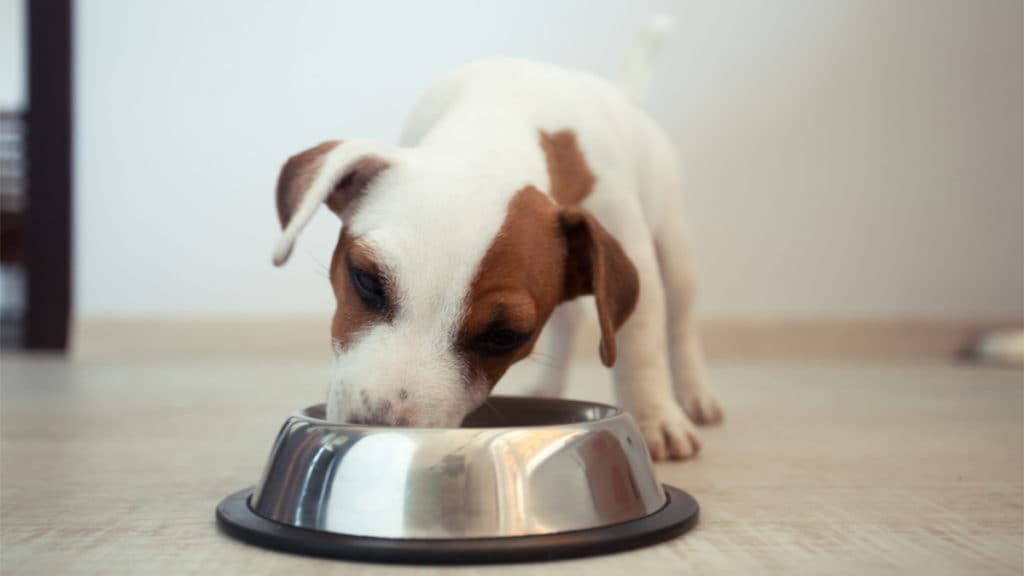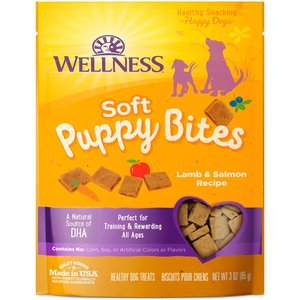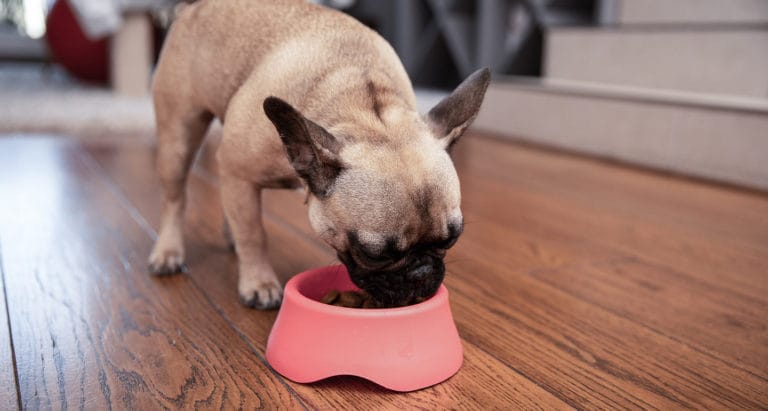Just like growing kids, puppies have specific nutritional needs that will support their development. So even when treating your pup to something special, it’s crucial to make sure that your new friend’s special dietary needs are being met.
Puppy Food and His Nutritional Needs
Puppies are extremely active and need to take in more energy-rich food and treats than adult dogs. However, don’t let that fact tempt you into overfeeding your new pal. If puppies overeat, they can grow too rapidly and this can lead to serious health problems, including painful joints, hip dysplasia, difficulty walking and even obesity.
When choosing the right dog food for your little friend, stick with a diet that’s specifically formulated for puppies. Most puppy formulas contain 25-30% pure protein to support their growth and development. Your pup would likely miss out on necessary nutrients if just given adult dog food during this key stage of development. That being said, large breed puppies may also need dog food that’s lower in calories and calcium than smaller breed puppies in order to keep them from growing too quickly. Check with your vet for the best recommendation for your new pet.
Much like human babies, puppies also need to eat more often throughout the day. Stick to serving your buddy three to four small portions of food instead of one or two larger meals until he reaches one year of age. For very young puppies—those between four and eight weeks who are just being weaned off of their mother’s milk—it’s recommend to mix a high-quality puppy food with warm water or puppy milk replacer to soften it and give it an appealing, easy-to-eat texture.
Treats, Training and Teeth
If you’re looking to treat your new puppy during training, stick with healthy, lower calories treats. Even active pups can pack on the pounds! Good behavior should be rewarded, but treats should be a part of a balanced diet. Try dog treats with health-boosting supplements like omega-3 fatty acids (good for his skin and coat), DHA (good for his cognitive and nervous system development), or formulas that support joint health.
If your puppy is teething, give him a specially formulated dental treat that is safe and tasty to chew on—and that should help condition him to stay away from furniture, shoes and other household items!
Share:














